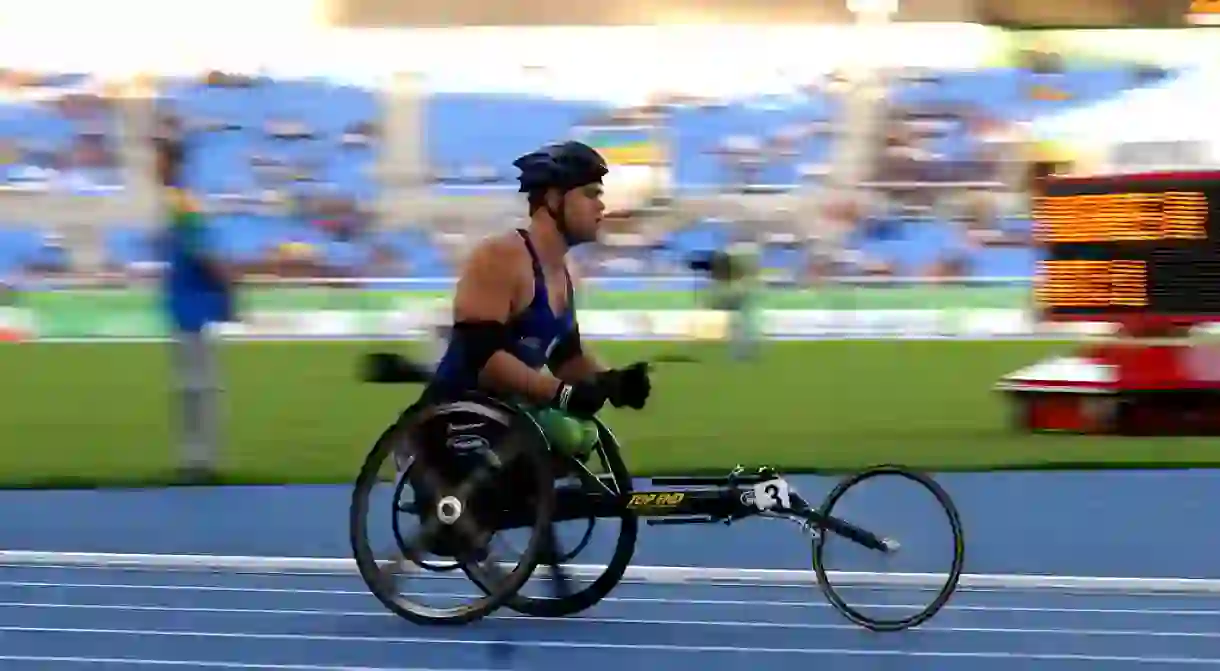The Paralympics Have Been a Success, But What's It Like Being Disabled in Brazil?

With the Paralympics underway, a large audience is being exposed to the extraordinary achievements of people with a physical or mental disability. Yet the realities of life with a disability in Rio de Janeiro can be lonely and frustrating, with considerably fewer facilities available for disabled than for able-bodied people. Although some improvements have been made, there is still a long way to go to make Rio disability-friendly.
In Brazil, nearly a quarter of the 200-million population has some form of disability, with Rio de Janeiro mirroring the same statistics. Disability is divided into four categories: visual, auditory, motor, and mental. Approximately 7.3 million people have visual deficiencies, with just over a million considered totally or almost blind. Brazil is the only country in Latin America that trains guide dogs, yet with only around 100 guide dogs fit for work, there is an alarming shortage in the assistance available in Brazil and throughout Latin America.
The training of guide dogs in Brazil has been funded primarily by private companies and NGOs, yet new projects such as the government initiative Viver Sem Limites (Living Without Limits) has set out to change that, with training centers opening across Brazil (though none are reported to be opening in Rio as of yet).

Having hosted the Summer Olympics, and now, with the start of the Paralympics, Rio has been striving to meet demands for accessibility for disabled people, yet accommodations still remain largely limited to access ramps into the stadium and slow elevators at the subways. The football stadium ramps have received complaints of being too steep, and disabled parking spaces at the beach volleyball arena has been re-allocated to Rio2016 official cars. Roads, too, are notably deficient in signals and infrastructure such as audio signals for the blind, and many don’t have dropped curbs for wheelchair access. For disabled citizens, seeking medical care is also a significant challenge, with public hospitals being poorly equipped to accommodate disabilities and medications often unaffordable for the majority of those who need it.

Mental health care is similarly insufficient, with expensive medicine leaving mentally handicapped people dependent on families or, worse, homeless. Psychiatric health facilities are unequally distributed throughout the country, with states such as Amazonas, in the north, having only four facilities for a population of 3 million. However, the government invested the equivalent of $427 million in 2009 to improve mental care facilities, and while mental health medics continued to be overwhelmed by the large number of patients, conditions and access is getting better.
There is hope that conditions will further improve with the Paralympics, which represent a huge step toward increasing awareness. Despite less coverage on Brazilian TV networks of these games than the Olympics, there is still plenty of talk about the events on the streets, with large crowds going to see the Paralympic events. The Brazilian national team hopes to educate people about disabilities and the discrimination that is faced every day by disabled Brazilians. A recent campaign by Vogue that used Photoshopped able-bodied models to portray disabled people was a blow to disability-rights campaigners, yet the resulting negative publicity actually served as a platform to further raise awareness and showcase everyday discrimination.

While there is a long way to go to reach equality, progress is being made. The Brazilian Institute for the Rights of the Disabled Person has rallied for better policies and helped more than 65,000 Brazilians (mostly from Rio) to access vocational training for better employment and initiated collective lawsuits against buildings and public services that violate accessibility rights.
Additional projects have been commissioned by the government to address disability issues in relation to health, education, and basic accessibility. So far, 23 out of the 27 states have joined these efforts. One project, An Accessible City Is A Human Right, aims to make Rio de Janeiro accessible for all and provide more opportunities for disabled people to develop their creative, artistic, and intellectual skills and potential.

The reality remains that Brazilian disabled citizens tend to suffer from a deeply rooted political and public unwillingness to enforce the laws and rights that exist in Brazil for disabled people. Rio still has much work to do in ensuring disabled access to public areas, schools, universities, and areas of employment. This includes providing braille, ramps, assistants, and audio aids. Yet with an enormous public event such as the Paralympics, and persistence on the part of organizations that fight for disability rights, public policies and attitudes are beginning to swing in the right direction with hope for a better future.













